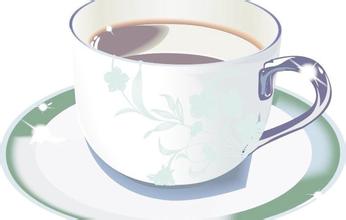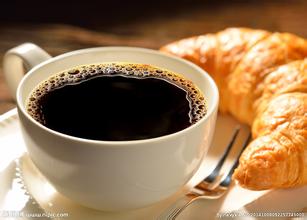Kenya Jinchu Coffee Bean characteristics graded Taste Grinding scale Manor
Kenya Jinchu Valley Coffee Bean Characteristics Graded Taste Grind Scale Manor Introduction
In addition to the obvious and fascinating fruit acidity, Kenya coffee is mostly grown by small coffee farmers in a variety of different environments, with different climates and rainfall each year, bringing a variety of distinct and unique personalities. Take AAPlus grade "KenyaAA+Samburu" as an example. Samburu of 2001 has strong dark plum fragrance, low acidity and strong taste. Samburu newly harvested in winter of 2002 presents completely different flavor. Mulberry berry and green plum, accompanied by a little spicy flavor. After drinking, it has sweet fragrance of green tea. The acidity is slightly higher than that of the previous year, and the taste is still strong. The typical Kenyan coffee is not dense, but it has a fruity, bright flavor, some spicy, some red. Kenyan coffee is further known for its Hollywood blockbuster, Out of Africa. In the film Merrill. Mary Streep plays Karen, a writer and coffee plantation owner. Many people probably still remember the breathtaking scenery and magnificent sunsets in the film, but what is even more memorable is Karen's dream of owning a coffee plantation in Africa Kenya Coffee Bean Kenya's government takes the coffee industry extremely seriously, where it is illegal to cut down or destroy coffee trees. Kenya's coffee buyers are world-class buyers of premium coffee, and no country grows, produces and sells coffee as consistently as Kenya. All coffee beans are first acquired by the Coffee Board of Kenya (CBK), where they are appraised, graded and then sold at weekly auctions, where they are no longer graded. The Kenya Coffee Board acts only as an agent, collecting coffee samples and distributing them to buyers so that they can determine price and quality. Nairobi auctions are held for private exporters and the Kenya Coffee Board pays growers below-market prices. The best coffee grade is bean berry coffee (PB), followed by AA++, AA+, AA, AB, etc., in that order. Fine coffee is shiny, delicious and slightly aromatic. The auction is also organized to meet the needs of the distributor. These auctions usually sell small quantities (3-6 tons each), with samples bearing the grower's logo for buyers to appreciate. After auction, exporters pack according to different flavors, different qualities and quantities required by blenders. This provides a great deal of flexibility for the deployer. Quality-conscious germans and nordics are long-term buyers of kenyan coffee, which is mostly grown at altitudes of 1500- 2100 metres and harvested twice a year. To make sure only ripe berries are picked, people have to make about seven rounds through the woods. Kenyan coffee is grown by smallholders who harvest the coffee and send it fresh to a cooperative washing station, which sends the washed and dried coffee to the cooperative in the state of "parchment beans"(i.e. beans covered with an endocarp)("parchment beans" are the final state of the beans before peeling). All the coffee is collected together and the grower charges an average price based on its actual quality. This method of buying and selling generally works well and is fair to both growers and consumers

Important Notice :
前街咖啡 FrontStreet Coffee has moved to new addredd:
FrontStreet Coffee Address: 315,Donghua East Road,GuangZhou
Tel:020 38364473
- Prev

Yunnan Coffea arabica Flower and Fruit Mountain Characteristics Flavor Description Processing Method Production Area Manor Introduction
The growth and development of coffee is closely related to climatic and environmental conditions. In the areas with strong wind, high temperature, strong light and easy drought soil, axillary buds tend to differentiate into flower buds, and the growth of branches is small, which is easy to cause premature senescence. Therefore, we should choose a place with calm wind, high humidity and short light as a garden.
- Next

Taste characteristics of Tanzania Coffee Bean Flavor description method
In October 2000, the Revolutionary Party won the second multi-party election by an absolute majority. However, the opposition Civic United Front refused to recognize the results of the Sang Island election and called on its supporters to hold protests, sparking large-scale bloodshed. The Mkapa government has taken resolute measures to maintain social order, while having dialogue with the opposition parties to promote the signing of a reconciliation agreement between the ruling and opposition parties, thus maintaining social stability.
Related
- Detailed explanation of Jadeite planting Land in Panamanian Jadeite Manor introduction to the grading system of Jadeite competitive bidding, Red bid, Green bid and Rose Summer
- Story of Coffee planting in Brenka region of Costa Rica Stonehenge Manor anaerobic heavy honey treatment of flavor mouth
- What's on the barrel of Blue Mountain Coffee beans?
- Can American coffee also pull flowers? How to use hot American style to pull out a good-looking pattern?
- Can you make a cold extract with coffee beans? What is the right proportion for cold-extracted coffee formula?
- Indonesian PWN Gold Mandrine Coffee Origin Features Flavor How to Chong? Mandolin coffee is American.
- A brief introduction to the flavor characteristics of Brazilian yellow bourbon coffee beans
- What is the effect of different water quality on the flavor of cold-extracted coffee? What kind of water is best for brewing coffee?
- Why do you think of Rose Summer whenever you mention Panamanian coffee?
- Introduction to the characteristics of authentic blue mountain coffee bean producing areas? What is the CIB Coffee Authority in Jamaica?

